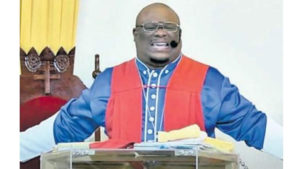 A senior police officer yesterday explained that the constabulary’s announcement on Wednesday that late Pathways International Kingdom Restoration Ministries leader Kevin Smith has been charged with murder was really an accounting procedure for transparency in the case.
A senior police officer yesterday explained that the constabulary’s announcement on Wednesday that late Pathways International Kingdom Restoration Ministries leader Kevin Smith has been charged with murder was really an accounting procedure for transparency in the case.
“Clearing up cases posthumously refers to a police investigative practice where a suspect who was being pursued in an investigation dies before the police were able to proffer the relevant charges against such suspect,” the senior cop, who opted not to be named, told the Jamaica Observer in an e-mailed response to the newspaper’s query.
“It’s a procedure where the records of such charges are made and cross-referenced with the original records reporting such incident in the police diary or any other such records impacting its origin,” he added.
“The deceased obviously cannot be communicated with, so he or she cannot be charged. Clearing up cases posthumously serves to maintain a true account of the work done and ultimately creates transparency relative to police statistics. This climaxes with the relevant file(s) being sent to the coroner for an inquest. The clearing up of cases posthumously is procedural and is managed and authorised by a senior police officer,” he explained further.
The police raise eyebrows Wednesday when they said that Smith, who had died in a car crash on Monday on the Linstead bypass in St Catherine while being transferred from Freeport Police Station in St James to the CIB headquarters in downtown Kingston, where charges were to be laid against him.
Smith was being charged with two counts of murder, two counts of wounding with intent, and illegal possession of firearm in relation to the vicious killings of 39-year-old Taneka Gardner and 38-year-old Michael Scottsdale Brown, both of St James, on October 17, in what was said to be a human sacrifice ritual at the Pathways church in St James.
